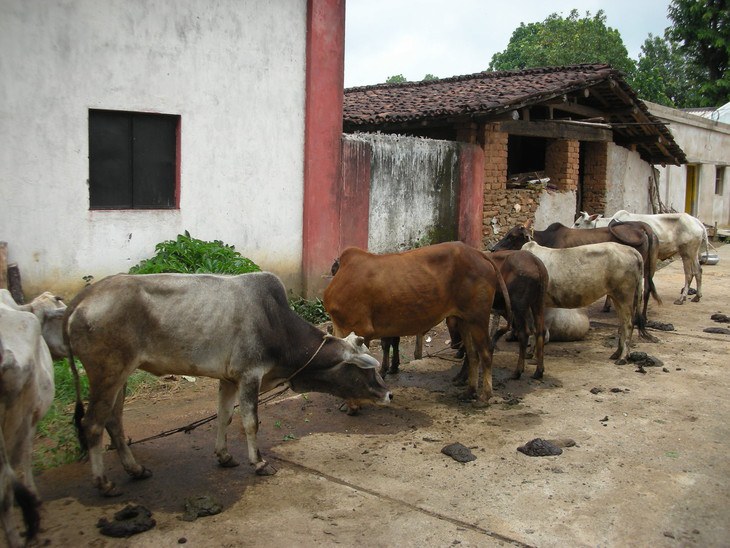Posted: January 23, 2017
The goal of eliminating malaria in countries like India could be more achievable if mosquito-control efforts take into account the relationship between mosquitoes and cattle, according to an international team of researchers. "In many parts of the world, the mosquitoes responsible for transmitting malaria are specialist feeders on humans and often rest within human houses," said Matthew Thomas, professor of entomology, Penn State. "We found that in an area of India that has a high burden of malaria, most of the mosquitoes that are known to transmit malaria rest in cattle sheds and feed on both cows and humans."

The researchers found that, in an area of India that has a high burden of malaria, most of the mosquitoes that are known to transmit malaria rest in cattle sheds and feed on both cows and humans. Image: Jessica Waite/Penn State
Ag Sciences Global
Address
106 Agricultural Administration BuildingUniversity Park, PA 16802
- Email globalag@psu.edu
- Office 814-863-0249
- Fax 814-865-3055
Ag Sciences Global
Address
106 Agricultural Administration BuildingUniversity Park, PA 16802
- Email globalag@psu.edu
- Office 814-863-0249
- Fax 814-865-3055

